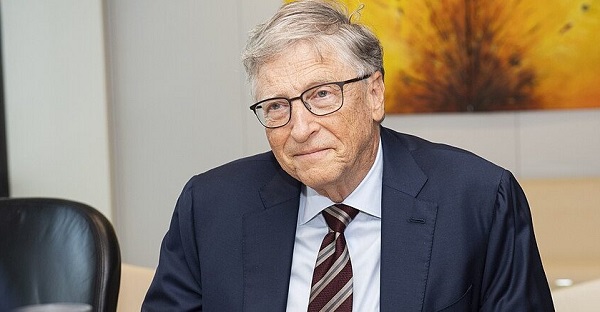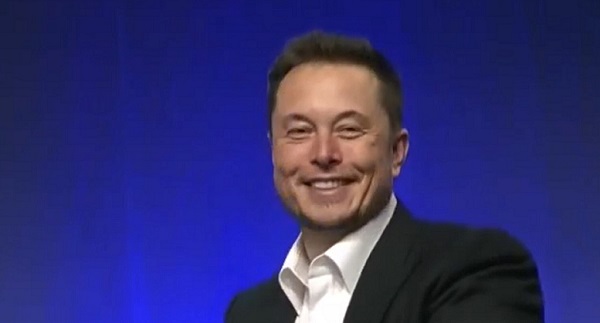Business
X challenges Ireland’s ‘Online Safety Code,’ warns of EU-wide censorship threat

From LifeSiteNews
By Cindy Harper
Musk’s X platform says Ireland is overreaching with censorship rules that undermine EU law and risk creating fragmented, state-controlled internet regimes.
X is mounting a fresh legal challenge against Ireland’s censorship-driven “Online Safety Code,” seeking to reverse a High Court ruling that dismissed its case earlier this summer.
The company argues the new regulatory framework opens the door to broad censorship and undermines legal protections for speech across the European Union.
The original lawsuit, heard earlier this year, focused on whether Ireland’s code went beyond the authority granted by the Audiovisual Media Services Directive (AVMSD) and conflicted with the EU’s Digital Services Act (DSA).
The court ruled in July that the code fell within the limits of both, stating that the Irish regulator had acted lawfully under the 2022 Online Safety and Media Regulation Act.
That judgment has now been challenged.
X has warned that the ruling sets a precedent that affects all 27 member states. The company said in a statement that the code effectively stretches across the entire bloc, with heavy reporting demands and the threat of large fines for what it called “slip-ups.”
“This ruling opens the door for national watchdogs to go even further,” the company stated, voicing concern over the long-term implications of allowing individual states to impose stricter content controls.
While governments frame these laws as protecting users from online harm, X argued the result could be a fractured regulatory landscape that breaks apart the EU’s digital single market.
“While pitched as child protection and harm reduction, the Online Safety Code threatens to splinter Europe’s digital single market by opening the door to a patchwork of conflicting local laws.”
Last October, Ireland's media regulator, Coimisiún na Meán, rolled out its Online Safety Code—a binding set of rules under the Online Safety and Media Regulation Act of 2022. Created for video-sharing platforms like X, it initially included general obligations in November, and…
— Global Government Affairs (@GlobalAffairs) September 3, 2025
X also argued that the code grants Irish regulators disproportionate authority to control online content and warned that it could conflict with basic civil liberties.
“It risks curbing freedom of speech in ways that clash with the European Convention on Human Rights,” the company stated. “Free expression is non-negotiable, and we’ll keep fighting for a unified, open internet where voices aren’t silenced by fragmented overregulation.”
The company emphasized that it would not retreat from the legal fight. “X isn’t backing down,” the statement read.
The Online Safety Code, introduced last year by Coimisiún na Meán, applies to video-sharing platforms and includes obligations that have steadily become more stringent.
In addition to broad content monitoring duties, platforms must implement age verification tools and submit quarterly compliance reports or face financial penalties.
Supporters of Ireland’s approach say it complements the EU’s DSA, which took effect in February and established a set of common rules for major online platforms. But these laws have been criticized for shifting the balance away from free expression and toward centralized control over what can be said online.
Ireland plays an outsized role in how these rules are applied, given the number of global tech giants that operate out of Dublin.
Any content regulation introduced there inevitably affects users far beyond the country’s borders, turning national policy into de facto EU-wide enforcement.
Reprinted with permission from Reclaim The Net.
Business
Bill Gates Gets Mugged By Reality


From the Daily Caller News Foundation
You’ve probably heard by now the blockbuster news that Microsoft founder Bill Gates, one of the richest people to ever walk the planet, has had a change of heart on climate change.
For several decades Gates poured billions of dollars into the climate industrial complex.
Some conservatives have sniffed that Bill Gates has shifted his position on climate change because he and Microsoft have invested heavily in energy intensive data centers.
AI and robotics will triple our electric power needs over the next 15 years. And you can’t get that from windmills.
What Bill Gates has done is courageous and praiseworthy. It’s not many people of his stature that will admit that they were wrong. Al Gore certainly hasn’t. My wife says I never do.
Although I’ve only once met Bill Gates, I’ve read his latest statements on global warming. He still endorses the need for communal action (which won’t work), but he has sensibly disassociated himself from the increasingly radical and economically destructive dictates from the green movement. For that, the left has tossed him out of their tent as a “traitor.”
I wish to highlight several critical insights that should be the starting point for constructive debate that every clear-minded thinker on either side of the issue should embrace.
(1) It’s time to put human welfare at the center of our climate policies. This includes improving agriculture and health in poor countries.
(2) Countries should be encouraged to grow their economies even if that means a reliance on fossil fuels like natural gas. Economic growth is essential to human progress.
(3) Although climate change will hurt poor people, for the vast majority of them it will not be the only or even the biggest threat to their lives and welfare. The biggest problems are poverty and disease.
I would add to these wise declarations two inconvenient truths: First: the solution to changing temperatures and weather patterns is technological progress. A far fewer percentage of people die of severe weather events today than 50 or 100 or 1,000 years ago.
Second, energy is the master resource and to deny people reliable and affordable energy is to keep them poor and vulnerable – and this is inhumane.
If Bill Gates were to start directing even a small fraction of his foundation funds to ensuring everyone on the planet has access to electric power and safe drinking water, it would do more for humanity than all of the hundreds of billions that governments and foundations have devoted to climate programs that have failed to change the globe’s temperature.
Stephen Moore is a co-founder of Unleash Prosperity and a former Trump senior economic advisor.
Automotive
Elon Musk Poised To Become World’s First Trillionaire After Shareholder Vote


From the Daily Caller News Foundation
At Tesla’s Austin headquarters, investors backed Musk’s 12-step plan that ties his potential trillion-dollar payout to a series of aggressive financial and operational milestones, including raising the company’s valuation from roughly $1.4 trillion to $8.5 trillion and selling one million humanoid robots within a decade. Musk hailed the outcome as a turning point for Tesla’s future.
“What we’re about to embark upon is not merely a new chapter of the future of Tesla but a whole new book,” Musk said, as The New York Times reported.
Dear Readers:
As a nonprofit, we are dependent on the generosity of our readers.
Please consider making a small donation of any amount here.
Thank you!
The decision cements investor confidence in Musk’s “moonshot” management style and reinforces the belief that Tesla’s success depends heavily on its founder and his leadership.
Tesla Annual meeting starting now
https://t.co/j1KHf3k6ch— Elon Musk (@elonmusk) November 6, 2025
“Those who claim the plan is ‘too large’ ignore the scale of ambition that has historically defined Tesla’s trajectory,” the Florida State Board of Administration said in a securities filing describing why it voted for Mr. Musk’s pay plan. “A company that went from near bankruptcy to global leadership in E.V.s and clean energy under similar frameworks has earned the right to use incentive models that reward moonshot performance.”
Investors like Ark Invest CEO Cathie Wood defended Tesla’s decision, saying the plan aligns shareholder rewards with company performance.
“I do not understand why investors are voting against Elon’s pay package when they and their clients would benefit enormously if he and his incredible team meet such high goals,” Wood wrote on X.
Norway’s sovereign wealth fund, Norges Bank Investment Management — one of Tesla’s largest shareholders — broke ranks, however, and voted against the pay plan, saying that the package was excessive.
“While we appreciate the significant value created under Mr. Musk’s visionary role, we are concerned about the total size of the award, dilution, and lack of mitigation of key person risk,” the firm said.
The vote comes months after Musk wrapped up his short-lived government role under President Donald Trump. In February, Musk and his Department of Government Efficiency (DOGE) team sparked a firestorm when they announced plans to eliminate the U.S. Agency for International Development, drawing backlash from Democrats and prompting protests targeting Musk and his companies, including Tesla.
Back in May, Musk announced that his “scheduled time” leading DOGE had ended.
-

 espionage2 days ago
espionage2 days agoU.S. Charges Three More Chinese Scholars in Wuhan Bio-Smuggling Case, Citing Pattern of Foreign Exploitation in American Research Labs
-

 Business1 day ago
Business1 day agoCarney budget doubles down on Trudeau-era policies
-

 Daily Caller2 days ago
Daily Caller2 days agoUN Chief Rages Against Dying Of Climate Alarm Light
-

 COVID-191 day ago
COVID-191 day agoCrown still working to put Lich and Barber in jail
-

 Business1 day ago
Business1 day agoCarney budget continues misguided ‘Build Canada Homes’ approach
-

 Business1 day ago
Business1 day agoCarney’s Deficit Numbers Deserve Scrutiny After Trudeau’s Forecasting Failures
-

 International24 hours ago
International24 hours agoKazakhstan joins Abraham Accords, Trump says more nations lining up for peace
-

 Business2 days ago
Business2 days agoU.S. Supreme Court frosty on Trump’s tariff power as world watches







